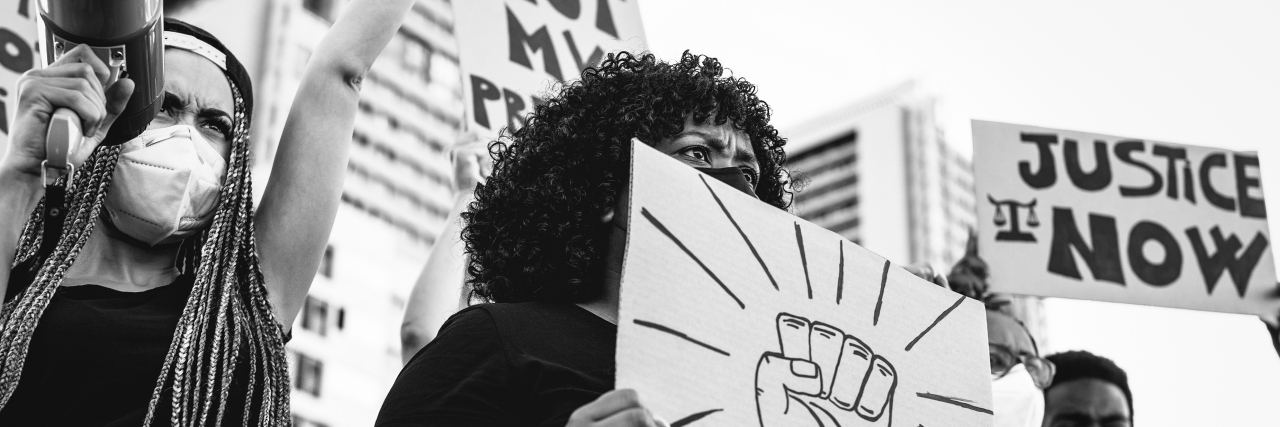After participating in my first few protests for Black Lives Matter and being exposed to stories of injustices happening in my community that I’d never heard about, I learned the importance of advocacy.
Hearing stories from people speaking at these protests made me realize that as a White woman in America, I will never know what it truly is like to be Black in America, and I can gain an understanding from listening to others’ stories. For change to happen, I need to listen, learn and be willing to do things differently. But in order for me to listen, someone with lived experience needs to talk, to tell their story, to help open my eyes to the truth that’s been here all along.
At these protests, we participated in 8 minutes, 46 seconds of silence, the amount of time Derek Chauvin had his knee on George Floyd’s neck as he struggled to breathe and ultimately was killed. During that time of silence, I reflected on everything I thought I knew about how we learn from one another.
For so long, I wanted to hide my cerebral palsy. The idea of having to “teach” others about my disability made me want to gag. I wanted people to just “get” it, but now I know they can’t. I must do something. I must say something. Just like I will never know what it’s like to be Black, many people will never experience disability firsthand. So, those of us with disabilities must teach them.
Even as someone with a disability, I’ll admit that I don’t know a lot of the disability experience because I “pass.” I’m pretty “normal,” but I read all these articles from The Mighty of others’ lived experiences and I learn so much from them. I hear fellow Mighty voices and I can begin to see injustices even I don’t experience.
On a walk with my mom today, we talked about the disabled experience, more specifically with buildings being grandfathered in when the ADA was signed in 1990 — a topic I brought up, which was brought to my attention from an article on The Mighty.
My mom tried to tell me that it’s hard for those buildings to be retrofitted to be accessible, and I told her that isn’t good enough. I tried to explain that when a business is inaccessible, that business is basically saying, “We don’t want you here. You are not worth the time, energy, or money required to come here.” That is another form of segregation. It’s similar to Black people being denied entrance to an establishment because of the color of their skin, but this time it’s because of their ability. That is ableism.
Desegregation happened over 50 years ago. The ADA was signed in 1990, and there’s a long way to go until people with disabilities are truly treated as equal, given equal access to employment and even just access to our own communities.
My only regret while being at these protests was not using my voice, as a disabled woman in America, to represent the many people with disabilities who are unable to come out and let their voices be heard. I wish I had a sign saying something like “people with disabilities know Black Lives Matter.”
I will never regret the amount of physical pain I’m experiencing from walking three miles one day, and four miles across town the next. When I couldn’t find a wheelchair to use for such a long distance, I knew I had to strap on my brace and grab my hiking sticks to walk because this is important. The muscle spasms and fatigue are all 100% worth it because Black Lives Matter.
Getty image by Alessandro Biascioli.

